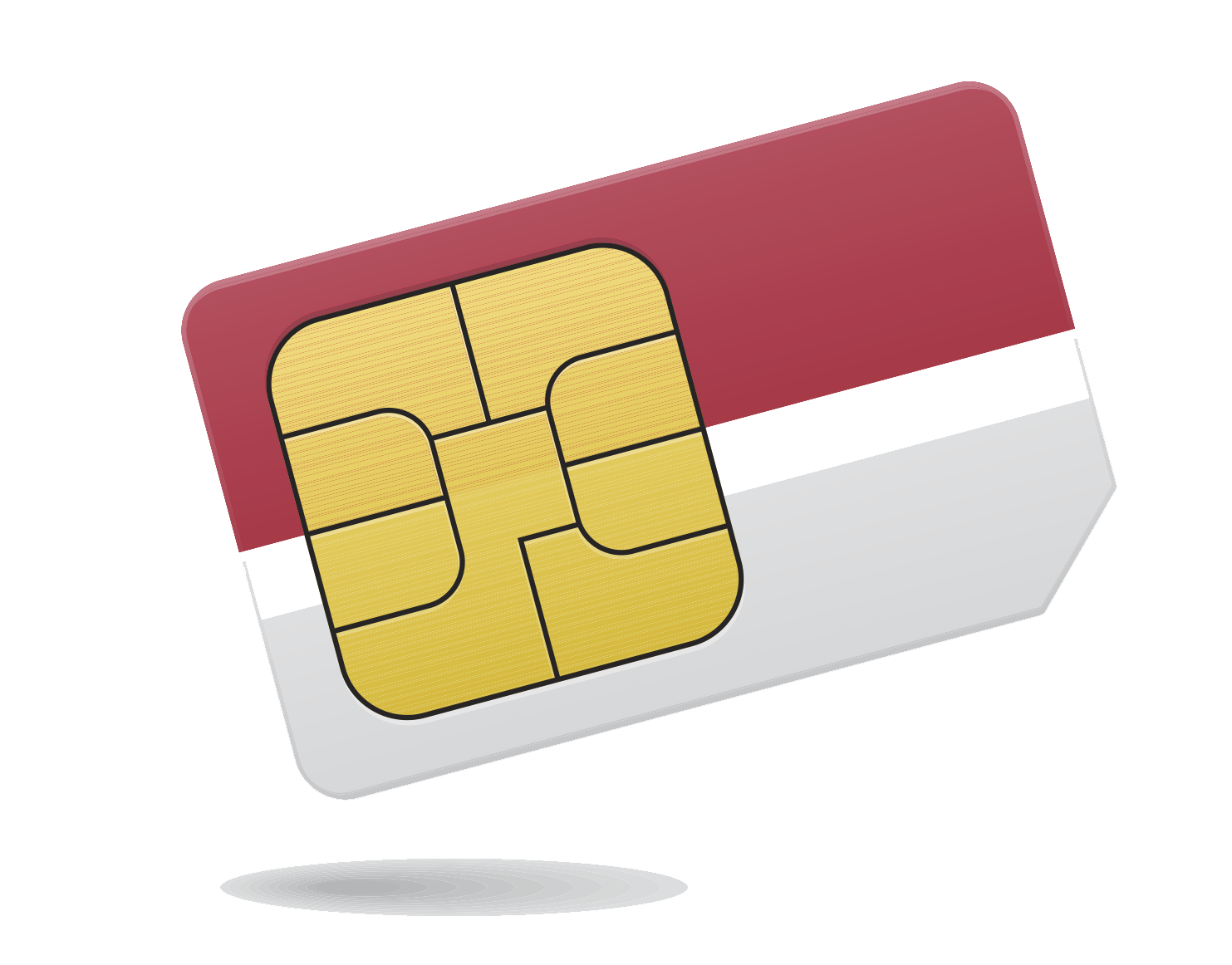
Stay Connected in Costa Rica
Navigate, share, and stay in touch with our comprehensive eSIM guide for Costa Rica.
1Introduction to Costa Rica as a Travel Destination
Pura vida! Staying connected in Costa Rica is important for navigating and sharing your adventure. This guide is tailored for international visitors (vacationers and digital nomads alike). It covers how travelers can get internet access easily, comparing international eSIMs vs local SIM cards. Costa Rica has reliable mobile networks in most tourist areas, and travelers have options: you can either use an eSIM for Costa Rica (purchased online before your trip) or buy a local SIM card when you arrive. We'll highlight the best eSIM for Costa Rica and tips to keep you connected from San José to the rainforest.
2Mobile and Internet Infrastructure
Costa Rica's mobile network infrastructure is quite extensive. The country enjoys solid 3G/4G coverage across most populated areas. Major highways and popular tourist destinations (beaches, national parks near towns) usually have good 4G signal.
The primary mobile operators are Kolbi (ICE) – the government-owned provider – which has the most extensive coverage nationwide, and Claro and Movistar (now branded as Liberty), which are growing and expanding their networks. In big towns and the Central Valley (San José, Liberia, etc.), all three networks offer 4G LTE and even some 5G in San José. In rural or remote areas, coverage can be hit or miss. Generally Kolbi reaches many remote regions (mountains, rural villages) thanks to its widespread tower network. Claro and Movistar/Liberty cover most of the country but may have some gaps in very remote spots. Interestingly, there are pockets where one of the smaller providers might have a signal while Kolbi doesn't – for example, a specific rural community might get a Claro signal but weak Kolbi, or vice versa. If you'll stay long-term in one area, it's smart to ask locals which network works best there. Overall, travelers sticking to common routes and attractions will find at least 3G/4G connectivity; deep in the jungle or mountain trekking, you could lose signal regardless of provider.
Network Providers Overview
| Provider | Coverage | Notes |
|---|---|---|
| Kolbi (ICE) | Most extensive coverage nationwide, including many remote regions | Government-owned provider, best for rural and remote areas |
| Movistar/Liberty | Good coverage in populated areas and tourist destinations | Growing network, 4G in most areas, some 5G in San José |
| Claro | Covers most of the country with some rural gaps | Expanding network, may have signal in specific areas where others don't |
3Guide to Getting Mobile Internet
Local SIM vs eSIM
Visitors in Costa Rica can choose between the convenience of an international eSIM or the low-cost of a local SIM. International eSIMs (from providers like Airalo, Holafly, Nomad) let you purchase a data plan online for Costa Rica and activate it digitally without swapping physical cards. The big advantage is convenience – you land in Costa Rica and your phone connects immediately, no need to find a SIM kiosk or deal with Spanish-language cell phone stores. eSIMs are generally easy for short-term tourists and provide ample data for things like Google Maps, WhatsApp, and Uber. However, eSIM data plans usually cost more per GB than local SIM deals. Also, eSIM plans are data-only, meaning you won't have a local Costa Rican number (though apps can handle calls).
Where to Buy
Local SIM cards in Costa Rica are very affordable – Kolbi, Claro, and Movistar all offer prepaid SIMs to foreigners. You can buy a prepaid SIM for about ₡1,000–₡2,000 (USD $1.50–$3) plus a data package. A typical tourist bundle might be ~$10 for several GB of data, unlimited WhatsApp, etc., lasting 2–4 weeks. Local SIMs require an unlocked phone and your passport for registration, but the process is usually quick at official stores or even airport counters. One thing to note: local SIMs give you a Costa Rican phone number, which can be useful if you need to call hotels or receive texts (e.g., for local banking if you're a long-term visitor). For a trip of a week or two, many travelers find an international eSIM's convenience worth the slightly higher cost, especially since it saves time on arrival. For longer stays or heavy data use (streaming videos, remote work), buying a local SIM can save money. It's easy to top up (recharge) at supermarkets or online, and coverage with a local SIM (especially Kolbi) might reach places an international eSIM (often tied to a specific network) might not.
4Major Mobile Providers and Plans

Airalo
A popular choice with both data-only and data+voice plans available for Costa Rica. Airalo's data eSIM (named "Hartonet") uses the Liberty (Movistar) network for 4G LTE coverage. Plans range from small packages like 1 GB for 7 days (~$9–12 USD) up to larger packs like 10 GB for 30 days (~$35 USD). Airalo even has an option including some local minutes/SMS, which is unique if you need to make local calls (though most stick to data-only). Coverage with Airalo (on Liberty's network) is generally good in all cities and tourist zones. Do note that Kolbi's network is not used by Airalo, so extremely remote areas where only Kolbi works might not have coverage on the eSIM. For most travelers, Airalo's ease of use and reasonable rates make it one of the best eSIMs for Costa Rica.
| Plan | Data | Validity | Price | Features |
|---|---|---|---|---|
| Costa Rica 1GB | 1 GB | 7 days | ~$9-12 USD |
|
| Costa Rica 3GB | 3 GB | 30 days | ~$18-20 USD |
|
| Costa Rica 5GB | 5 GB | 30 days | ~$25-28 USD |
|
| Costa Rica 10GB | 10 GB | 30 days | ~$35 USD |
|

Nomad
Nomad also offers Costa Rica eSIM data plans at similar price points to Airalo (e.g., 10 GB for ~$35 USD). Nomad's eSIM likewise operates on the Liberty Movistar network, with 4G coverage across the country. Nomad's app is easy to use for purchase and activation. The service allows tethering and has no daily caps (it's a fixed data allotment). Nomad and Airalo are pretty comparable for Costa Rica; savvy travelers might check both for any promotions. As Liberty's network has decent coverage in all the popular areas, Nomad eSIM users can expect solid service in San José, Liberia, Jacó, Manuel Antonio, Arenal, etc., with some rural outages possible in off-beat places.
| Plan | Data | Validity | Price | Features |
|---|---|---|---|---|
| Costa Rica 5GB | 5 GB | 30 days | ~$25-28 USD |
|
| Costa Rica 10GB | 10 GB | 30 days | ~$35 USD |
|

Holafly
Holafly provides unlimited data eSIMs in Costa Rica, appealing to those who don't want to monitor usage. They offer plans by duration (e.g., 5, 10, 15, 20, 30 days, all with unlimited data). Holafly eSIMs in Costa Rica run on the Liberty (former Movistar) 4G network, similar to the others. While "unlimited", these plans typically come with a fair use policy – users report that after around 2–5 GB per day of high-speed use, speeds might be throttled. Also, tethering may be limited (often around 500 MB per day for hotspot) to prevent abuse. Holafly is significantly pricier; for instance, 15 days unlimited is about $47 USD. This could be worth it if you absolutely need a lot of data (e.g., constant video streaming or work uploads) and don't want to buy multiple top-ups. Otherwise, most travelers find 3–5 GB is enough for a week (especially if using hotel Wi-Fi), in which case Airalo or Nomad with fixed data can be more cost-effective.
| Plan | Data | Validity | Price | Features |
|---|---|---|---|---|
| Costa Rica 5 Days | Unlimited | 5 days | ~$19 USD |
|
| Costa Rica 10 Days | Unlimited | 10 days | ~$34 USD |
|
| Costa Rica 15 Days | Unlimited | 15 days | ~$47 USD |
|
| Costa Rica 30 Days | Unlimited | 30 days | ~$64 USD |
|

Local Costa Rican SIM Cards
If you prefer not to use an eSIM, you can easily get a local Kolbi, Claro, or Movistar SIM upon arrival. There are Kolbi and Claro booths at SJO Airport and LIR Airport that sell prepaid SIMs to tourists. Prices are low – for example, Kolbi might offer 2 GB for 7 days around $5 USD, or unlimited WhatsApp for a month with any recharge. Just remember you'll need to show your passport and the SIM will be phone-number based (replace or eSIM on your device). It's a great option for long stays.
| Plan | Data | Validity | Price | Features |
|---|---|---|---|---|
| Kolbi Prepaid | Various packages available | Typically 7-30 days | From ~$5 USD for 2GB/7 days |
|
| Movistar/Liberty Prepaid | Various packages | Typically 7-30 days | Competitive with Kolbi |
|
| Claro Prepaid | Various data bundles | Typically 7-30 days | Often has promotional rates |
|
5Device Compatibility and Activation
For eSIMs, your device must be eSIM-compatible and unlocked. This includes iPhone XR/XS and newer, Samsung Galaxy S20 and newer, Google Pixel 3 and later, and many other recent smartphones. For physical SIM cards, your phone simply needs to be unlocked to use with Costa Rican carriers. All Costa Rican networks use standard GSM technology compatible with most international phones.
6Tips and FAQs for Staying Connected
Where to Buy/Setup
If using an eSIM, purchase and download the eSIM QR code before your trip (Airalo, Nomad, etc., apps allow this). Activate the eSIM only when you land in Costa Rica (to start the validity). For physical SIMs, the easiest spot is the airport on arrival – look for Kolbi or Claro kiosks in the arrivals area. Otherwise, official carrier stores in cities or electronics shops can sell SIMs. You'll need your passport; the staff will register the SIM with your ID. The process is usually quick, but at peak times there could be a line of other tourists.
Network Selection
Many international eSIMs in Costa Rica use Liberty's network. In your phone's mobile network settings, you might see the network listed as "Movistar" or "Liberty". It should auto-connect. If you have any connection issues, you can manually select Movistar/Liberty or even Claro (some eSIMs may allow roaming on Claro as backup). For local SIMs, your phone will just connect to that provider's network (Kolbi or whichever you bought). In areas with marginal signal, try moving to an open area or higher ground – dense rainforest or mountainous terrain can block signals.
Wi-Fi and Saving Data
Make use of Wi-Fi where available. Many hotels, cafes, and restaurants in tourist areas offer free Wi-Fi. In cities like San José or Tamarindo, you'll find Wi-Fi in lots of places. Use it to download offline Google Maps (highly recommended – save maps for Costa Rica offline in Google Maps app), upload large photos/videos, and do app updates. This will conserve your mobile data for when you truly need it on the road. Costa Rica's power infrastructure can be less reliable in remote areas (occasional outages), so don't rely 100% on Wi-Fi – have some data as backup for calling an Uber or checking directions.
Apps & Calls
With a data plan active, you can use WhatsApp for virtually all communication in Costa Rica. WhatsApp is ubiquitous – hotels and tour operators often list their WhatsApp numbers. It's perfect for texting or calling with data. If you need to call a local number (say, to reserve a tour or restaurant), you can usually do it through WhatsApp or use a VoIP service. Alternatively, purchase a few local calling minutes (Airalo's combo plan or a local SIM) if you expect to make calls to local businesses that aren't on WhatsApp. Remember that emergency number in Costa Rica is 911, which should work from any mobile phone, but with a foreign eSIM you might need to use apps if you don't have a calling plan. Keep a translation app or Spanish phrasebook handy if you visit a carrier store – though many staff in tourist areas speak English.
Device Settings
Disable any background data hogs – for example, cloud backups of photos should be set to Wi-Fi only. It's also wise to turn off data roaming on your primary SIM to avoid accidental charges (if you have a physical SIM from home in the phone). Set your phone to use the eSIM for data and keep an eye on your usage via the eSIM app or phone settings. If traveling across borders (like also visiting Nicaragua or Panama on the same trip), note that a single-country eSIM for Costa Rica won't work outside the country. You'd need another plan for other countries (or a regional "Central America" eSIM if available). Plan accordingly if your itinerary is multi-country.
Conclusion
Costa Rica offers reliable mobile connectivity for travelers in most populated areas and tourist destinations. For short-term visitors prioritizing convenience, international eSIMs from Airalo or Nomad (both using Liberty's network) provide immediate connectivity upon arrival with good coverage in cities and popular tourist spots. Holafly's unlimited data plans offer peace of mind for heavy users, though at a premium price. For budget-conscious travelers or those staying longer, local SIM cards from Kolbi (ICE) provide the most extensive nationwide coverage, especially in remote areas, while Claro and Movistar/Liberty offer competitive alternatives. Remember that while connectivity is generally good along common routes and attractions, deep jungle areas or mountain treks may have limited or no signal regardless of provider. By choosing the right mobile solution, you'll be able to navigate efficiently, stay in touch, and share your pura vida experience while exploring Costa Rica's incredible natural beauty.